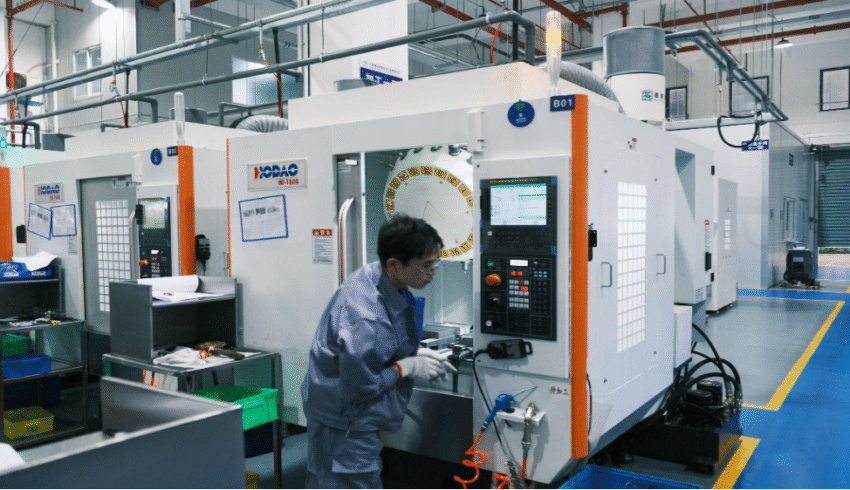Across China, countless workshops produce precision components for industries ranging from robotics to oilfield equipment. But despite their advanced capabilities, many remain hidden from the world.
They rarely advertise internationally. Few maintain searchable catalogs or online quoting systems. Even factories with ISO certifications, state-of-the-art machines and decades of experience often go unnoticed.
At Haizol Marketplace, we’ve created an online custom manufacturing marketplace to close that gap. Our mission is to connect overseas buyers with China’s hidden manufacturing depth by organising supplier data around what they can make, not who they know.
Beneath the Headlines: China’s Real Industrial Backbone
Over four million small and mid-sized manufacturers power China’s industrial output.
- They represent over 80% of the industrial workforce.
- They hold a majority of domestic patents.
- They supply core parts across the automotive, aerospace, electronics, and machinery sectors.
Yet most are locked into single-industry supply chains and remain underexposed to international demand. Regional clusters like those in Dongguan house hundreds of factories within walking distance. Yet many operate in isolation, lacking collaborative frameworks or digital presence.
What’s Keeping Them Disconnected?
In a recent conversation with Haizol CEO Sherry She Ying, three recurring barriers emerged:
- Staying in One Industry Lane
Many suppliers focus narrowly on a single sector. Even with cross-compatible machines and skill sets, they rarely explore adjacent industries. - Siloed Ecosystems
Factories in the same cluster often don’t work together, even when their services could complement each other. Opportunities to handle more complex, multi-process orders are lost. - Digital Gaps
Without searchable factory profiles, quoting systems, or standardised data, most SMEs rely on agents. This slows response times and makes it harder for overseas buyers to evaluate them directly.
How Haizol Marketplace Solves This
Haizol is purpose-built for sourcing non-standard, low-to-high volume custom parts from China.
Engineer and procurement teams can submit part drawings, material requirements, tolerances, and delivery timelines. Our system analyses these specifications and searches across a network of over 700,000 verified Chinese factories specializing in CNC machining, sheet metal fabrication, injection molding, and casting and invites them to quote for their project.
Instead of relying on keywords or ads, we match based on hard data, factory equipment, inspection procedures, certifications, and proven production history. The result: precise supplier matches built for technical fit.
What Happens When Capabilities Become Searchable
One buyer urgently needed complex sheet metal parts with tight deadlines. Within 24 hours, we identified 18 qualified suppliers. The contract went to a little-known Cangzhou factory. Four years on, the relationship is still active and costs are down 20%.
A Dongguan-based shop previously producing telecom shells now supplies robotic housing assemblies after being matched through our system.
In Suzhou, a factory manufacturing oilfield gauges expanded to international markets within weeks, doubling its export revenue after being introduced to three buyers in Europe and North America.
These aren’t isolated wins. They show that when discovery is based on verified capability, any factory can scale globally without changing what they make.
Changing the Rules of Global Sourcing for Custom Parts Manufacturing
Global supply chains are being restructured around flexibility and resilience. For custom manufacturing companies in China, the question is no longer whether they can compete. It’s whether they can be found.
At Haizol, we believe the future of custom parts and components manufacturing lies in precision. Not just in the parts produced, but in how supplier relationships are built. The factories exist. The capabilities are proven. What’s been missing is a smarter way to surface them.
Explore how we’re redefining the sourcing process at Haizol marketplace, the platform where China’s untapped custom parts manufacturing capacity meets global demand for custom parts.


